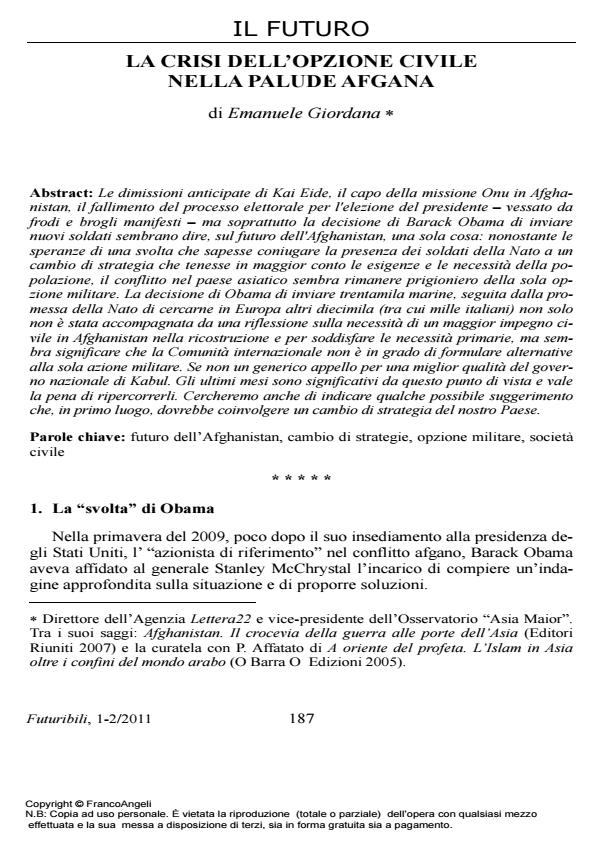The crisis of the civilian option in the Afghan quagmire
Journal title FUTURIBILI
Author/s Emanuele Giordana
Publishing Year 2011 Issue 2011/1-2
Language Italian Pages 8 P. 187-194 File size 255 KB
DOI 10.3280/FU2011-001013
DOI is like a bar code for intellectual property: to have more infomation
click here
Below, you can see the article first page
If you want to buy this article in PDF format, you can do it, following the instructions to buy download credits

FrancoAngeli is member of Publishers International Linking Association, Inc (PILA), a not-for-profit association which run the CrossRef service enabling links to and from online scholarly content.
The resignation of Kai Eide, head of the UN mission in Afghanistan, the vitiation of the presidential election by manifest fraud and rigging, and above all Barack Obama’s decision to send more troops to the country seem to imply only one thing: despite hopes for a change that would combine the presence of Nato forces with a new strategy that took greater account of the population’s needs, the Afghan conflict remains a hostage to the military option and no other. Obama’s decision to send 30,000 marines, followed by Nato’s commitment to find another 10,000 troops in Europe (including 1,000 Italians), has not only not been accompanied by any thought of a greater civilian commitment to reconstruction and the meeting of basic needs, it also seems to imply that the international community is unable to formulate any alternative to military action. Apart, that is, from a generic call for a better quality of government in Kabul. The last few months have been highly significant in this regard and are worth careful analysis. The article concludes with a few suggestions which would, first and foremost, entail a change of strategy on the part of the Italian government.
Keywords: Futuro dell’Afghanistan, cambio di strategie, opzione militare, società civile
Emanuele Giordana, La crisi dell'opzione civile nella palude afgana in "FUTURIBILI" 1-2/2011, pp 187-194, DOI: 10.3280/FU2011-001013